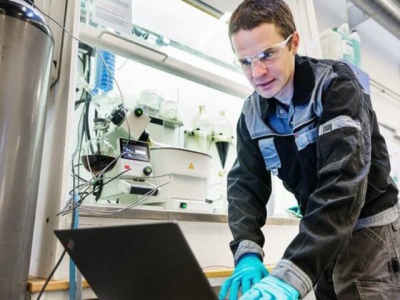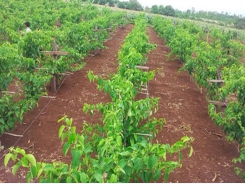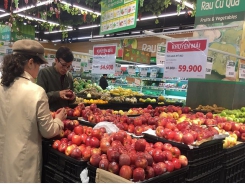Pioneering technology may recover phosphorus from manure, sludge

REBOOT project for liquid waste management officially starts Jan. 1, 2020, at Aarhus University.
If the project is successful, it will have a positive effect on the environment across the world, as it will make mining for phosphorus redundant and will provide a sustainable fuel, recovered directly from wastewater. Photo AU Foto.
An engineer from Aarhus University in Denmark has received European Union funding for the launch of a new research project that may have far-reaching and ground-breaking environmental significance as it promises to completely revolutionize the way liquid waste is managed.
A grant of 11.2 million Danish kroner (approximately $1.7 million) from the ERC Starting Grant under the EU Framework Program for Research & Innovation (Horizon 2020) initiates the project, which will be headed by chemical engineer and assistant professor Patrick Biller in the Aarhus department of engineering.
According to the announcement, Biller will use state-of-the-art technology known as continuous hydrothermal liquefaction (HTL) to recover phosphorus and carbon from manure and sewage sludge (carbon in the form of so-called biocrude, which can be refined into aviation fuel).
Aarhus said the project is ground-breaking because it will allow for almost 100% recycling of valuable resources in liquid waste management. In addition to biocrude, the end product consists of nothing more than clean, fresh water, hydrogen and carbon dioxide.
"I'm very grateful to have been awarded this grant, which makes it possible to develop this exciting new technology that will enable us to recover valuable phosphorus from waste otherwise difficult to manage," Biller said.
Phosphorus is a valuable and scarce resource that is ranked among the top 20 most critical raw materials by the EU, the university said, noting that Europe does not have its own phosphorus reserves, which means phosphorus is primarily imported from North Africa, where it is retrieved from mines as phosphate rock.
Denmark's swine herd of approximately 13 million pigs produces large amounts of phosphate-rich organic manure, which is difficult to reuse as fertilizer without harming the environment, Aarhus said.
To recycle the phosphorus, farmers apply manure to fields as fertilizer, which, in many countries, leads to environmental problems like contamination of the aquatic environment, groundwater and air.
Aarhus noted that manure may also contain antibiotics and other residues, which is the case with sewage sludge that may contain residues from microplastic, estrogens, pathogens and pharmaceutical products, including antibiotics.
"Due to the relatively high temperatures and pressures in the HTL reactor, all environmentally hazardous substances are destroyed so that the phosphorus we eventually recover is clean, safe and plant available," Biller said.
The project, named REBOOT, officially starts Jan. 1, 2020, at which point Biller will set up a research group for it. The project will be run at pilot scale at the department of engineering's Center for Biorefining Technologies at Foulum, Denmark, which is home to one of the world's largest HTL reactors, Aarhus said.
The aim is to create a single, cohesive system that is fed sewage sludge and manure at one end and supplies the valuable raw materials at the other end. Biller will make it possible to do so by developing new solutions and technologies within catalysis, water purification and filtration.
If the project is successful, it will have a large and positive effect on the environment across the world, because it will make phosphorus mining redundant and will provide a sustainable fuel recovered directly from wastewater, Aarhus said.
Có thể bạn quan tâm
Phần mềm

Phối trộn thức ăn chăn nuôi

Pha dung dịch thủy canh

Định mức cho tôm ăn

Phối trộn phân bón NPK

Xác định tỷ lệ tôm sống

Chuyển đổi đơn vị phân bón

Xác định công suất sục khí

Chuyển đổi đơn vị tôm

Tính diện tích nhà kính

Tính thể tích ao hồ



 First batch of fresh Vietnamese longan arrives in…
First batch of fresh Vietnamese longan arrives in…  Fruit and vegetable exports drop 5.8 per cent…
Fruit and vegetable exports drop 5.8 per cent…